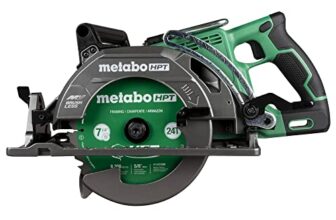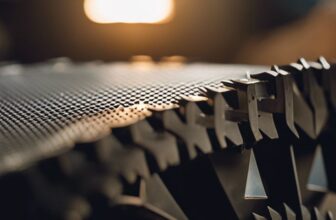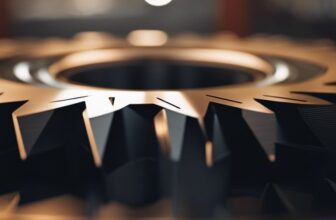What circular saw blade for MDF
MDF Blade selection is crucial when working with Medium Density Fiberboard (MDF) to ensure clean cuts and smooth edges. Using the right blade not only enhances the quality of your projects but also ensures safety during cutting. The right blade will minimize tear-out, reduce chipping, and prevent kickback, resulting in precise and professional-looking results. When choosing a circular saw blade for MDF, considering the blade’s number of teeth, tooth configuration, and tooth material is crucial. Understanding these factors will help you select the best blade for your specific cutting needs and achieve optimal performance when working with MDF.
Key Takeaways:
- Choose the right teeth count: Opt for a circular saw blade with a high tooth count, around 80-100 teeth, for achieving smooth and clean cuts on MDF. Higher tooth count minimizes splintering and tear-out on the material.
- Look for carbide-tipped blades: Carbide-tipped circular saw blades are durable and maintain sharpness for longer periods, making them ideal for cutting through MDF which is abrasive to blades.
- Consider the blade diameter: Select a blade diameter suitable for your circular saw model and the depth of cut required for your MDF projects. Typically, a 7-1/4 inch blade is commonly used for cutting MDF with standard circular saws.

Types of Circular Saw Blades
It is vital to choose the right type of circular saw blade for your specific cutting needs. Different materials require different blades to achieve clean and precise cuts. Here are some of the most common types of circular saw blades:
| Blade Type | Best For |
| Carbide-Tipped Blades | Cutting through dense materials like MDF or plywood |
| High-Speed Steel Blades | General-purpose cutting on softer materials like wood |
| Diamond Blades | Cutting through tough materials like tiles and concrete |
| Abrasive Blades | Cutting through metal |
| Masonry Blades | Cutting through brick, stone, and concrete |
Carbide-Tipped Blades for MDF
On carbide-tipped blades are ideal for cutting through dense materials like MDF or plywood. The sharp and durable carbide tips provide long-lasting performance and clean cuts. These blades are perfect for woodworking projects that require precision and efficiency.
High-Speed Steel Blades
Steel blades are versatile and suitable for general-purpose cutting on softer materials like wood. The high-speed steel construction allows for efficient cutting and long blade life. These blades are cost-effective and commonly used by DIY enthusiasts and professional carpenters.
This information shows the importance of selecting the right circular saw blade for your specific cutting needs. It ensures safety and enhances the quality of your woodworking projects.

Factors to Consider When Selecting a Blade for MDF
All woodworking projects require careful consideration of the tools and materials involved. When considering selecting the right circular saw blade for MDF, there are several crucial factors to keep in mind to ensure a successful cutting experience. Understanding these factors will help you achieve precise and clean cuts on your MDF boards.
Blade Tooth Design
With the right tooth design, you can optimize the performance of your circular saw blade when cutting MDF. For this material, a blade with ATB (Alternate Top Bevel) teeth is highly recommended. These teeth create clean cuts by slicing through the material without tearing or chipping. The number of teeth on the blade also plays a significant role in determining the smoothness of the cut.
Blade Diameter and Arbor Size
Selecting the correct blade diameter and arbor size is imperative for compatibility and safety. Ensure that the blade diameter matches your circular saw to avoid any issues during operation. Additionally, check that the arbor size of the blade is compatible with your saw to prevent any wobbling or slippage while cutting.
Plus, make sure to secure the blade tightly onto the arbor before use to avoid any accidents or injuries. Knowing that the blade is securely fitted will give you peace of mind during the cutting process.
Saw Blade Maintenance and Safety
Maintenance Tips for Prolonged Blade Life
Unlike other tools, circular saw blades require regular maintenance to ensure optimal performance and longevity. To prolong the life of your saw blade, it’s crucial to keep it clean and free of pitch and debris. Use a cleaning solution specifically designed for saw blades to remove resin buildup, and always store the blade properly to prevent damage or dulling.
- Regular cleaning: Keep the blade clean and free of resin buildup.
- Proper storage: Store the blade in a protective case or sheath to prevent damage.
- Sharpness check: Regularly inspect the blade for dullness or damage.
Recognizing when a circular saw blade is dull and needs replacement is crucial in preventing accidents and achieving clean cuts. Regular maintenance will not only extend the life of your blade but also ensure safer and more efficient cutting.
Safety Precautions While Using Circular Saws
Safety should always be a top priority when operating power tools, especially circular saws. Before using a saw, ensure that all safety guards are in place and functioning correctly. Always wear appropriate safety gear, including goggles and ear protection, to prevent injury from flying debris and loud noise. Additionally, be mindful of your hand placement and keep the work area well-lit and clutter-free to avoid accidents.
Conclusion
Presently, choosing the right circular saw blade for MDF is crucial to ensure clean and precise cuts. Referencing trusted sources like Quora can provide valuable insights on the best saw blades for cutting MDF. To find out more about the best saw blade for cutting MDF, visit What is the best saw blade for cutting an MDF?.
FAQ
Q: What type of circular saw blade should I use for cutting MDF?
A: When cutting MDF, it is best to use a carbide-tipped blade with a high tooth count. A blade with 60 to 80 teeth will provide clean and smooth cuts on MDF, minimizing chipping and tearout.
Q: Can I use a regular wood cutting blade for MDF?
A: While you can technically use a regular wood cutting blade on MDF, it is not recommended. Standard wood cutting blades typically have fewer teeth, which can result in more chipping and rough edges when cutting MDF. It is best to use a blade specifically designed for cutting MDF to achieve the best results.
Q: How can I prolong the life of my circular saw blade when cutting MDF?
A: To prolong the life of your circular saw blade when cutting MDF, make sure to feed the material slowly and steadily to prevent overheating and blade dulling. Additionally, using a blade with a specially designed coating to reduce friction can help minimize heat buildup and extend the blade’s lifespan.









